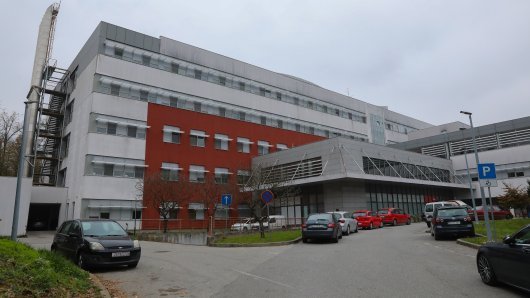Croatian Foreign Minister Vesna Pusic and her Slovenian counterpart Karl Erjavec met in the Slovenian lakeside resort of Bled on Monday to discuss the Ljubljanska Banka issue and the role of the two countries in bringing the Western Balkan countries closer to the European Union. The meeting was held on the margins of the Bled Strategic Forum conference.
They expressed moderate optimism about the work of the two countries' financial experts, Zdravko Rogic of Croatia and France Arhar of Slovenia, in seeking a solution to the Ljubljanska Banka issue, which Slovenia is indirectly using as a condition for the ratification of Croatia's EU accession treaty. The experts are due to hold their second meeting on September 18.
Addressing a joint press conference after the talks, Pusic said that the first meeting of the financial experts had shown that it was possible to reach a solution that would produce a win-win situation for both countries and that they could come out with their proposal in the foreseeable future. She noted that the European partnership of Croatia and Slovenia was more important over the long term than anything else because the two countries were neighbours, adding that after Croatia joined the European Union next year the two countries would have a chance to use their partnership to help other countries in the region in the EU accession process.
"We are in a position and we have a task to assume responsibility for our own region," Pusic said and added: "Our responsibility does not end on our borders." She said that Slovenia and Croatia should use their European partnership to help in building the state institutions of the Western Balkan countries and in stabilising the entire region, stressing that it would be a historic achievement.
When asked when Slovenia could be expected to ratify Croatia's EU accession treaty, Pusic said she would want it to happen as soon as possible.
"I think it would be a positive step forward, a positive message to both societies and political elites, if Slovenia was not the last country to ratify Croatia's accession treaty," Pusic said, adding that it was not for her to say when Slovenia would ratify the document, but that she would want it to happen before the end of this year.
Erjavec said that the progress made by the financial experts already at their first meeting was positive and that this was confirmed at today's meeting. He added that he believed that it was possible to reach a solution that would be acceptable to both countries.
Erjavec said that the financial experts would continue their work and that they could make it easier for the two governments to reach an agreement. "We have agreed to continue dialogue, because only dialogue can produce solutions, even to the toughest issues," he said.
Erjavec expressed hope that the financial experts would come out with their solution as soon as possible. Once their proposal is approved by the two governments, there would be no reason for Slovenia not to start the ratification process immediately, he said.



































